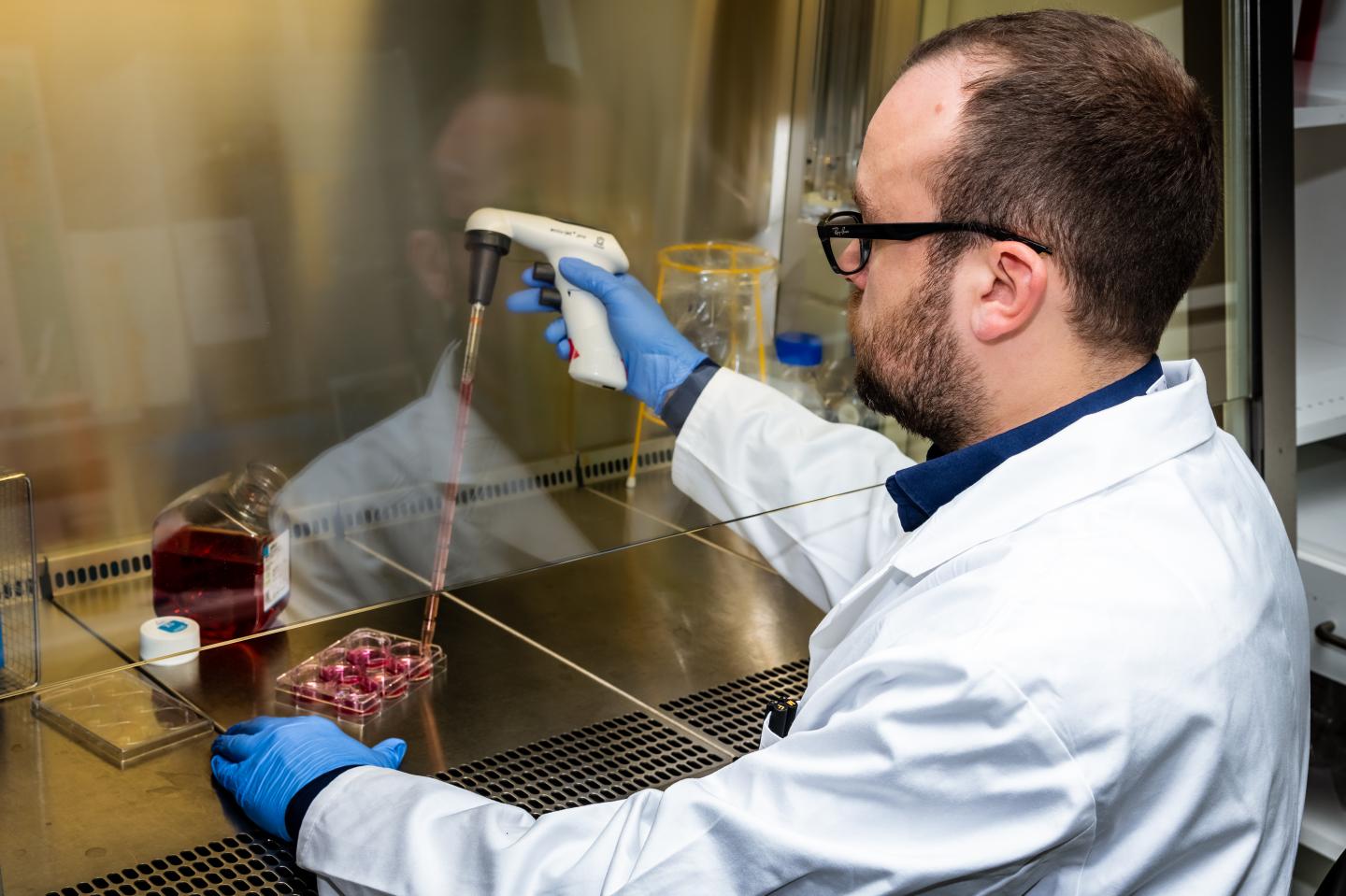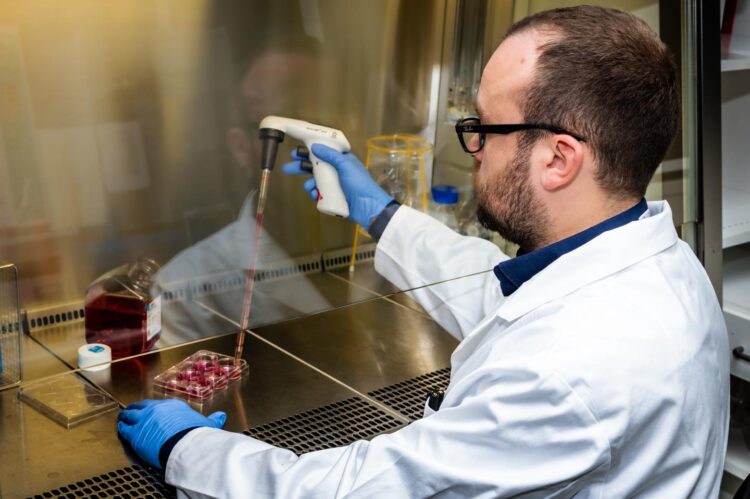
Credit: Adrian Rodríguez Rodríguez/GSI
It is still a glance into the future: The combination of carbon ion and immune therapy could become an effective tool in the fight against cancer. Promising results for the potential benefit of this treatment combination have now been published in the renowned radiation therapy journal “International Journal of Radiation Oncology, Biology, Physics” of the American Society for Therapeutic Radiation Oncology (ASTRO). The authors are an international team of researchers, led by the Department of Biophysics at the GSI Helmholtzzentrum für Schwerionenforschung in Darmstadt, and including the Parthenope University of Naples and the Japanese National Institute for Radiological Sciences (NIRS-QST) in Chiba.
Even though the results are only preclinical and the way to clinical application is still long, the current findings point into a promising direction: It was shown that carbon ions, as used in the cancer therapy developed at GSI, can be very effective when used in combination with specific molecules, called checkpoint blockers, that stimulate the immune system against the tumor metastases.
The aim of the published research work was to compare the efficacy of conventional radiation therapy (high-energy X-rays) and carbon ion therapy in combination with immunotherapy. The immune system plays an important role in the prevention of cancer. Usually, it recognizes degenerated cells and can “sort them out”. At the same time, it is equipped with highly complex control mechanisms to avoid overreactions. This is exactly what cancer cells can sometimes use to their advantage and to down-regulate immune surveillance. They disappear from the radar, so to speak. Immunotherapy can reactivate the immune system in the fight against cancer. It is now frequently used for advanced malignancies and metastatic patients, but unfortunately is effective only in some tumor types.
In the other cases, conventional radiation therapy is added as a second component, which under certain conditions can release such brakes on the immune system. The radiation-induced triggering of an immune response and its amplification by immunotherapy can lead to good results especially in the control of metastases, such as a slowdown of growth. But only parts of the patients respond to this combination of therapies.
Can radiotherapy with carbon ions, which was developed very successfully at GSI and is now in clinical application in Heidelberg and Marburg and in other nine centers worldwide, for certain types of tumors, open up new perspectives and help to control metastasis? It is possible that this form of therapy is more immunogenic, i.e. it could trigger an even stronger immune response than conventional radiation therapy and, together with immunotherapy, might result in more patients responding to this therapy combination. Based on such considerations, the team with lead author Dr. Alexander Helm (GSI) in the current experiment, conducted at the accelerator in Chiba, Japan, for the first time has directly compared carbon ions with conventional X-rays in a mouse model.
In the control of the primary tumor (here osteosarcoma, a bone tumor), carbon ions and X-rays, each combined with immunotherapy, produced similar results. However, when looking at the growth of metastases, the results show that metastases are significantly reduced if the primary tumor is treated with carbon ion radiation and a following immunotherapy. The researchers were able to demonstrate that carbon ions plus immunotherapy is more effective in controlling lung metastases than both therapies alone and more effective than X-rays plus immunotherapy.
In order to better assess this potential, further research has to be conducted and finally, together with international partners, the application in clinical studies must be tested. Professor Marco Durante, head of the GSI Biophysics Research Department, explained the future research: “At GSI/FAIR, the focus of our research is on understanding the cellular and molecular mechanisms that trigger a strong immune response. The goal is to answer the central question: How should irradiation be applied to achieve the most efficient, the best immune response in the fight against cancer.”
The possibilities of combining cutting-edge molecular biology with high-energy heavy ion physics at the GSI/FAIR campus and the future accelerator center FAIR promise unique scientific knowledge. The Scientific Director of GSI and FAIR, Professor Paolo Giubellino, emphasized “The present results show the great potential of carbon ion therapy, which is far from being exhausted. Together with our national and international partners, we will continue to conduct research on this highly relevant topic in the coming years. The first stage of the FAIR experimental program, FAIR Phase 0, already offers outstanding opportunities in this field”.
###
Media Contact
Ingo Peter
[email protected]
Original Source
https:/
Related Journal Article
http://dx.





